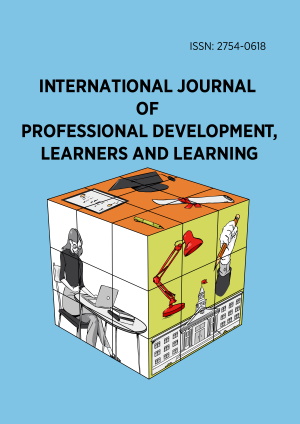Volume 1, Issue 2, July 2020
Research Article
International Journal of Pedagogical Development and Lifelong Learning, 1(2), July 2020, ep2007, https://doi.org/10.30935/ijpdll/8426
Research Article
International Journal of Pedagogical Development and Lifelong Learning, 1(2), July 2020, ep2008, https://doi.org/10.30935/ijpdll/8439
Research Article
International Journal of Pedagogical Development and Lifelong Learning, 1(2), July 2020, ep2009, https://doi.org/10.30935/ijpdll/9139

 The articles published in this journal are licensed under the CC-BY Creative Commons Attribution International License.
The articles published in this journal are licensed under the CC-BY Creative Commons Attribution International License.